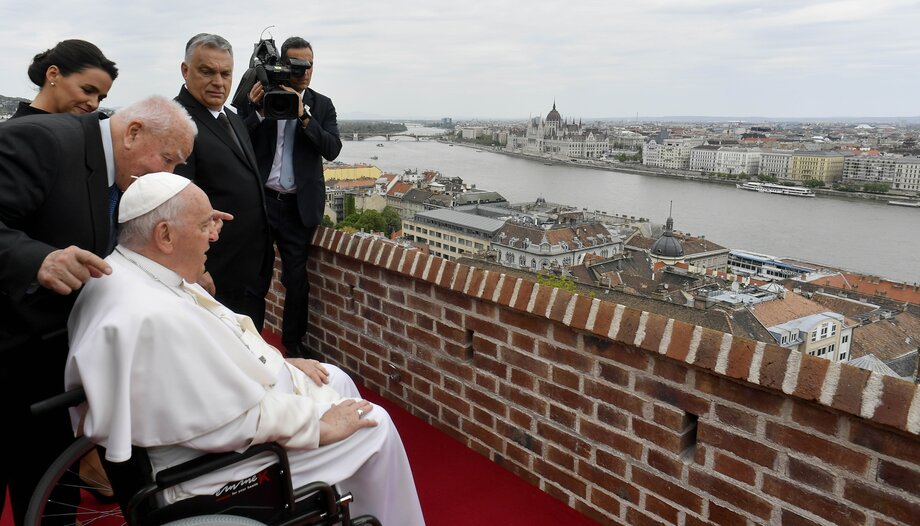As part of the apostolic journey to HungaryPope Francis met with priests, seminarians, bishops and consecrated persons. During his speech he wanted to remind everyone of one of the most important requirements: "to interpret the changes and transformations of our time, trying to face the pastoral challenges in the best possible way". Something that, Francis affirmed, "is only possible by looking to Christ as our future".
If we forget that Jesus is the future and that our life is in his hands, "we will look for human means and instruments to defend ourselves from the world, enclosing ourselves in our comfortable and tranquil religious oases; or, on the contrary, we will adapt ourselves to the changing winds of worldliness and, then, our Christianity will lose vigor and we will cease to be salt of the earth".
The interpretation of history
Therefore, the Holy Father encouraged us to avoid two temptations in the interpretation of history: on the one hand, the catastrophic reading, "which feeds on the defeatism of those who repeat that all is lost, that the values of the past no longer exist, that we do not know where we will end up"; and on the other hand, the naive interpretation that hides in conformism. The solution is to "welcome as a fruitful plant the time in which we live, with its changes and its challenges, because through all this the Lord is drawing near. In the meantime, we are called to cultivate the time that has come to us, to read it, to sow the GospelWe are called to a prophetic welcome".
Recognizing God's presence
Francis defined this acceptance as the recognition of "the signs of God's presence in reality, even where it does not appear explicitly marked by the Christian spirit and comes to meet us with that character that provokes and challenges us". At the same time, it is the ability to see everything through the lens of the Gospel.
In the face of today's prevailing secularism, "the temptation can be to become rigid, to close ourselves off and adopt a combative attitude. But such realities can represent opportunities for us Christians, because they stimulate faith and the deepening of certain themes".
Openness to dialogue
The current situation, the Pope pointed out, demands that we Christians open ourselves to dialogue, which is not easy either, in part also because of the overload of work that many priests suffer.
For this reason, "it is necessary to begin an ecclesial reflectionsynodalWe must all work together to update pastoral life, without being satisfied with repeating the past and without being afraid to reconfigure the parish in the territory, but making evangelization a priority and initiating an active collaboration between priests, catechists, pastoral workers and teachers".
Testimony of communion
But Francis warned that good pastoral care is only possible by following the commandment of love given by Christ. "If we are distanced or divided, if we become rigid in our positions and in groups, we do not bear fruit. It causes sadness when we are divided because, instead of playing as a team, we play the game of the enemy: bishops disconnected from one another, priests in tension with the bishop, older priests in conflict with younger ones, diocesans with religious, presbyters with laity, Latins with Greeks; we polarize ourselves on issues that affect the life of the Church, but also on political and social aspects, entrenching ourselves in ideological positions."
In view of this, the Holy Father recalled that "the first pastoral ministry is the witness of communion, because God is communion and is present where there is fraternal charity".
Faith in Hungary
In conclusion, Francis repeated that "Christ is our future, because it is He who guides history. Your confessors of the faith were firmly convinced of this: so many bishops, priests, men and women religious martyred during the atheistic persecution; they bear witness to the granite faith of the Hungarians".
He invited those present to be welcoming and witnesses of the Gospel, "but above all be women and men of prayer, because history and the future depend on it. I thank you for your faith and fidelity, for all the good that you have and do".







